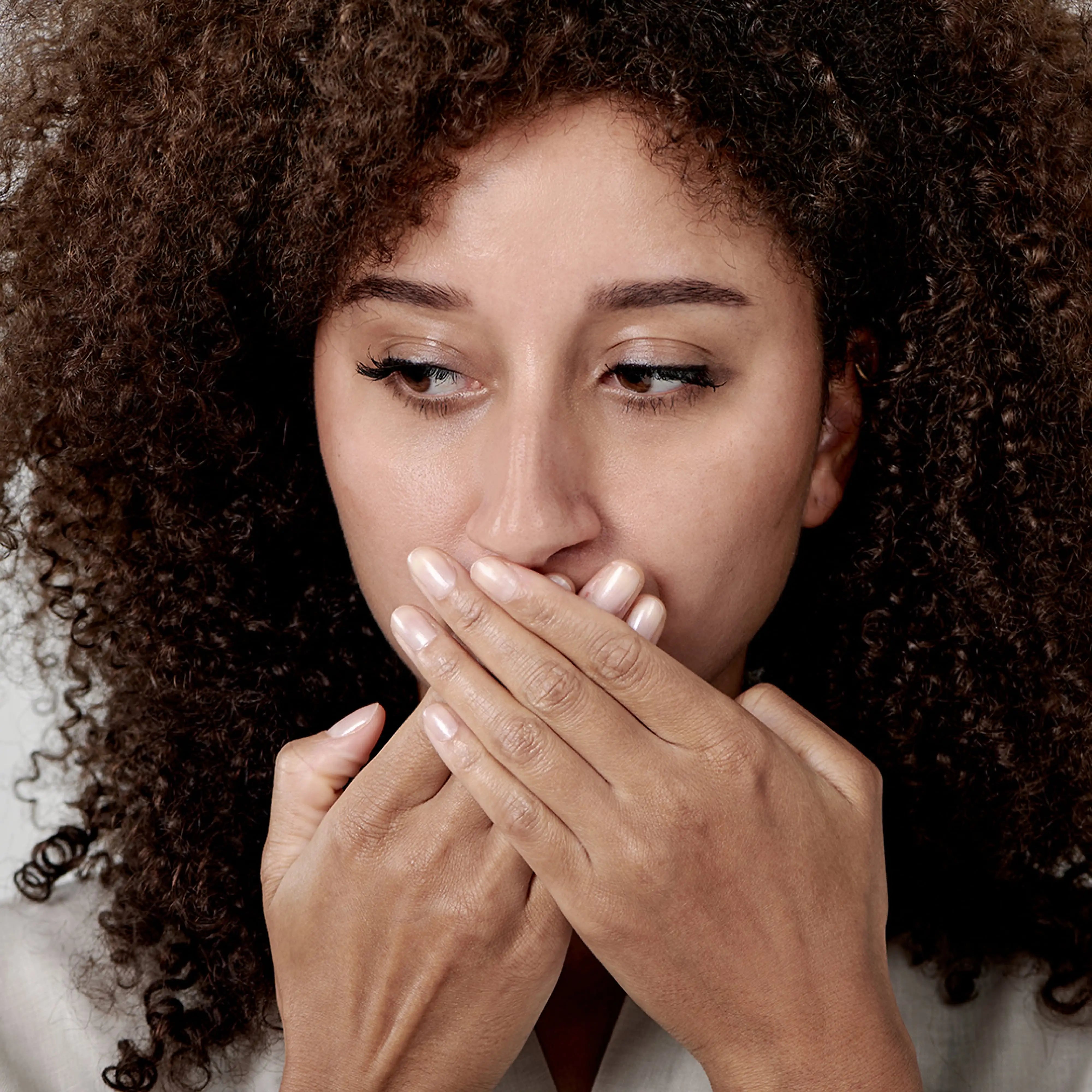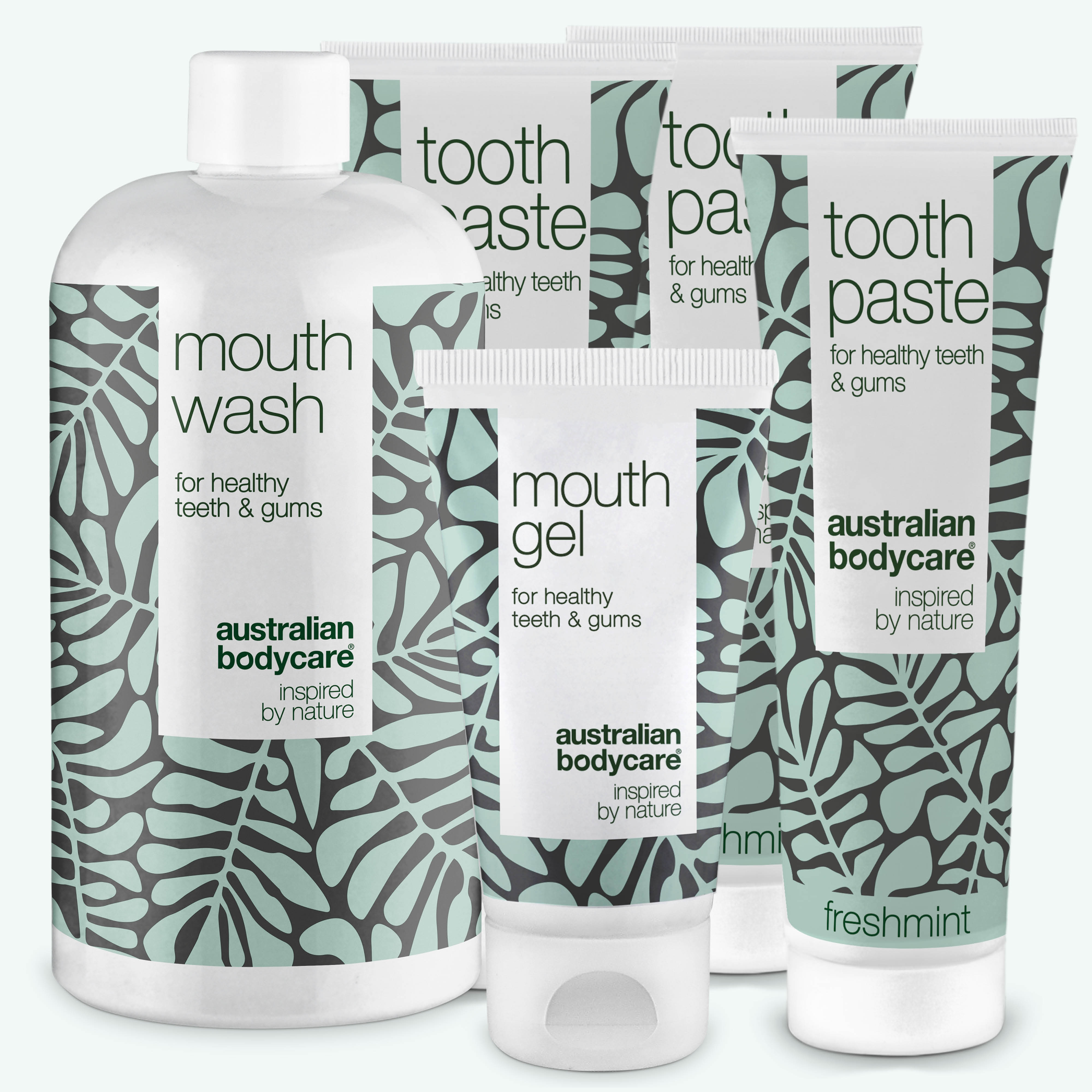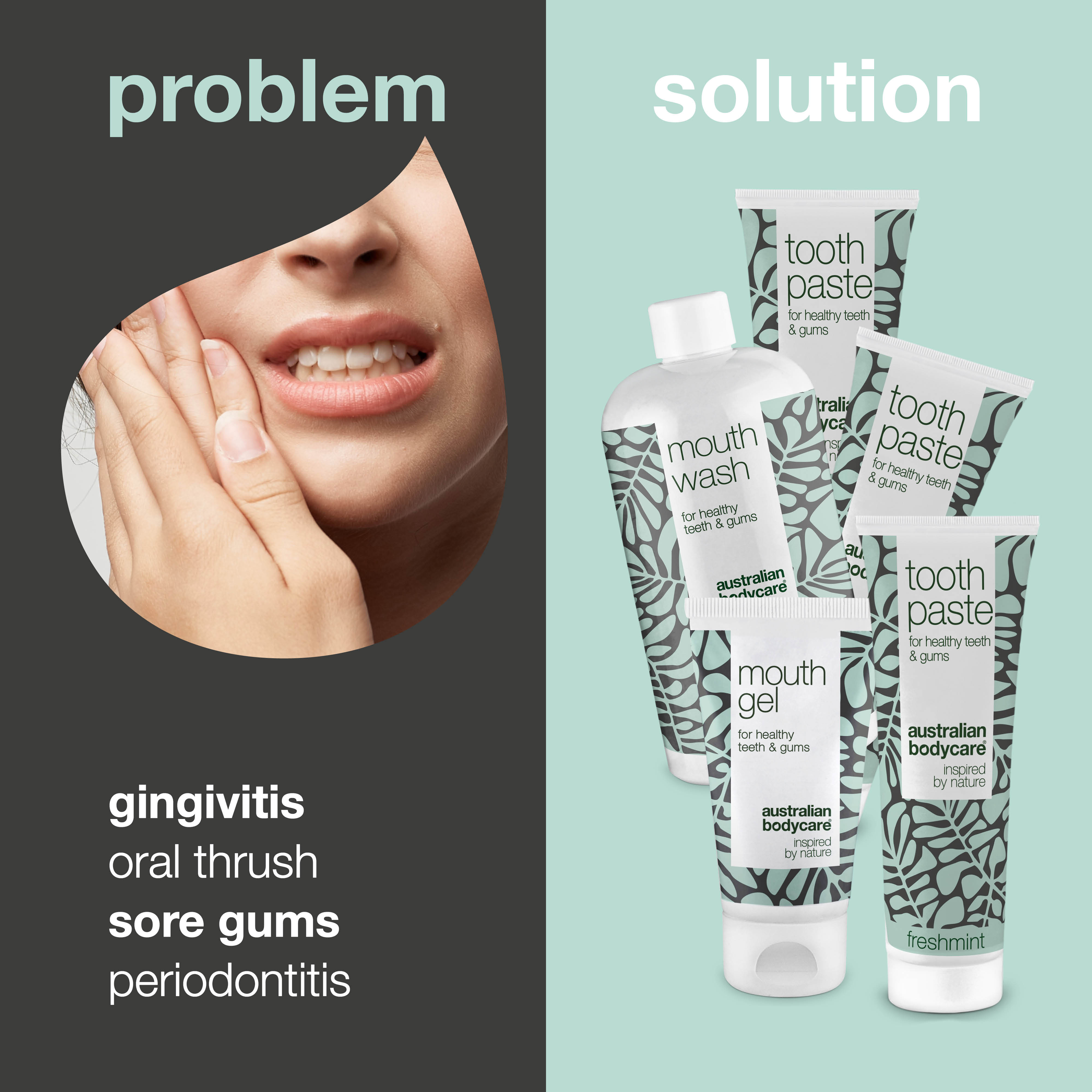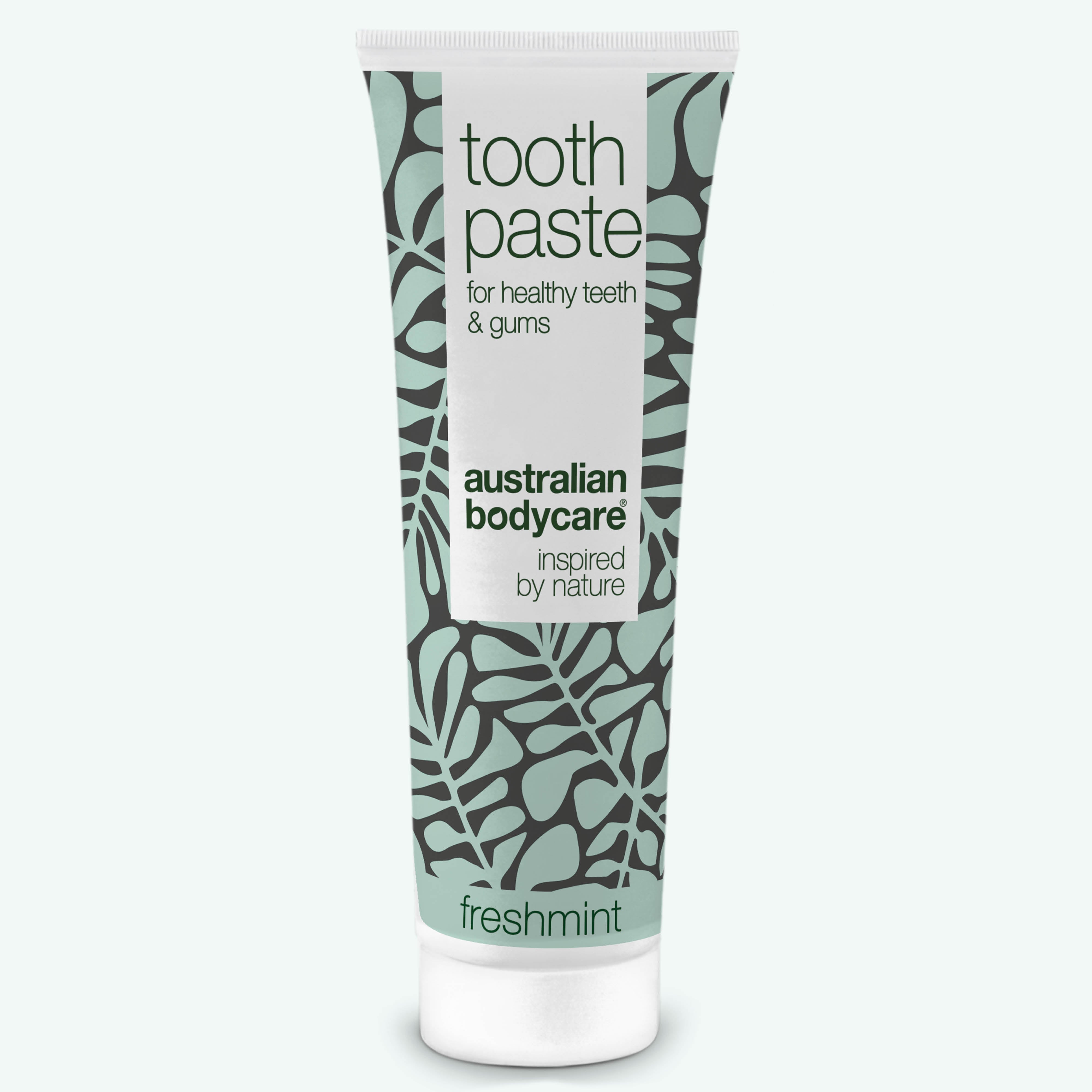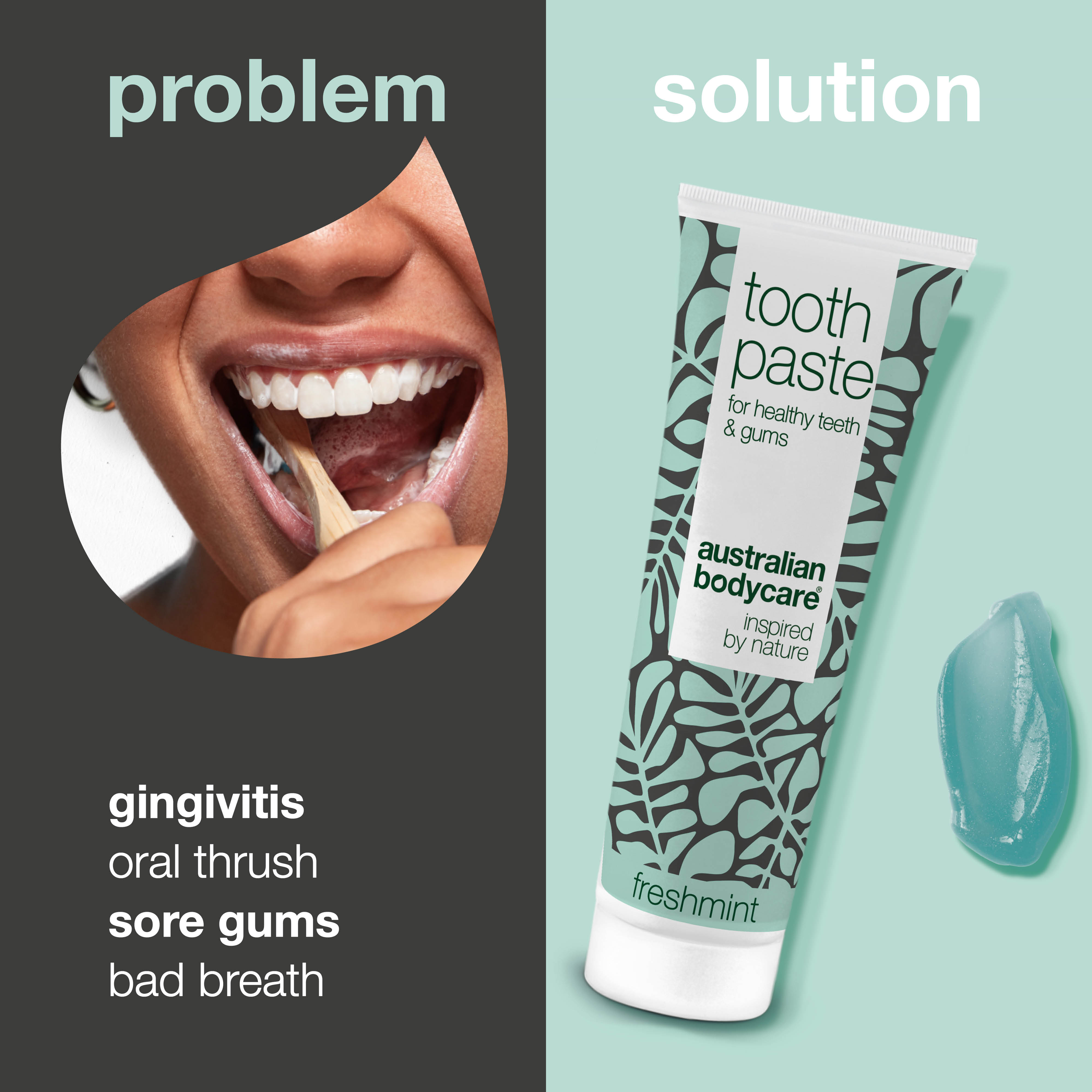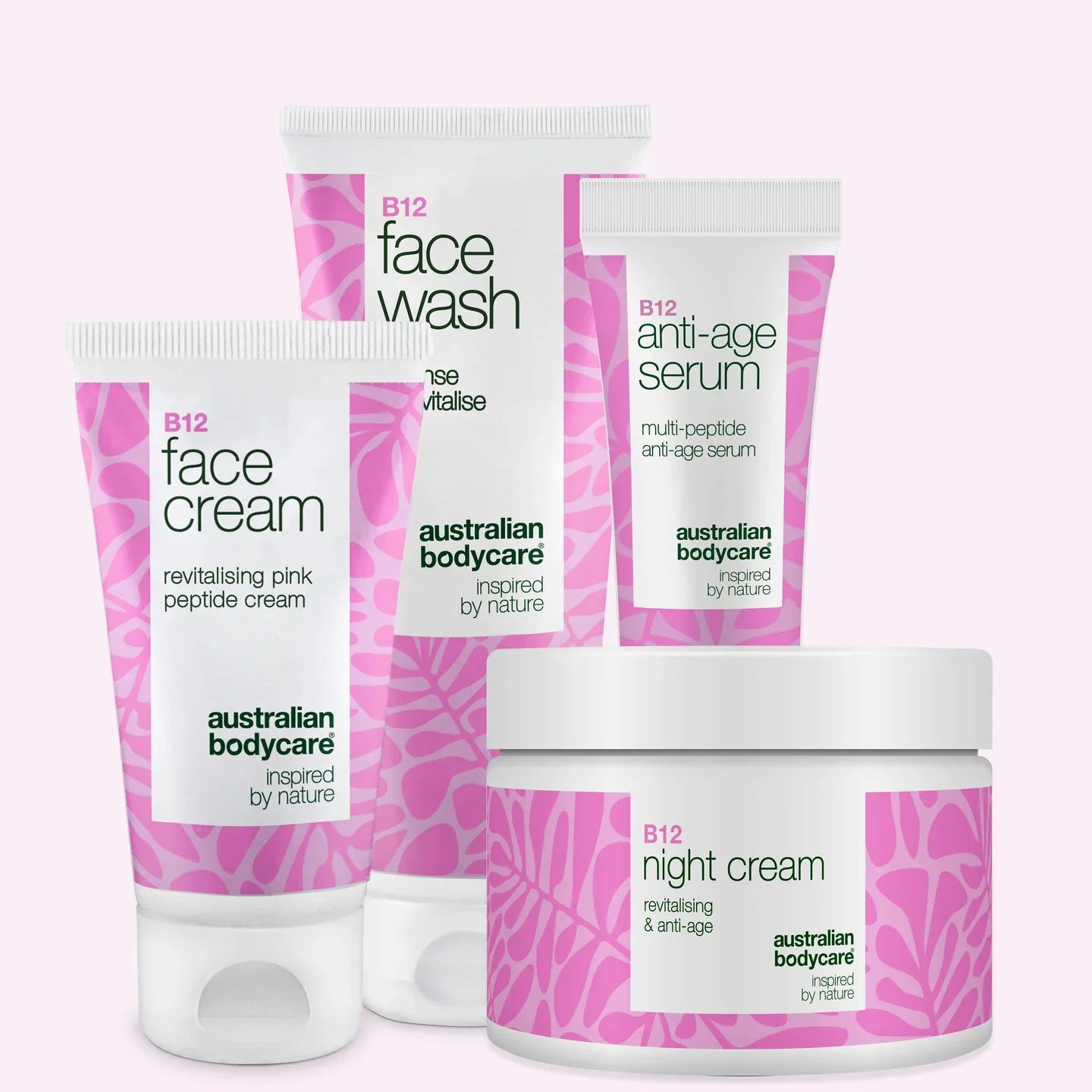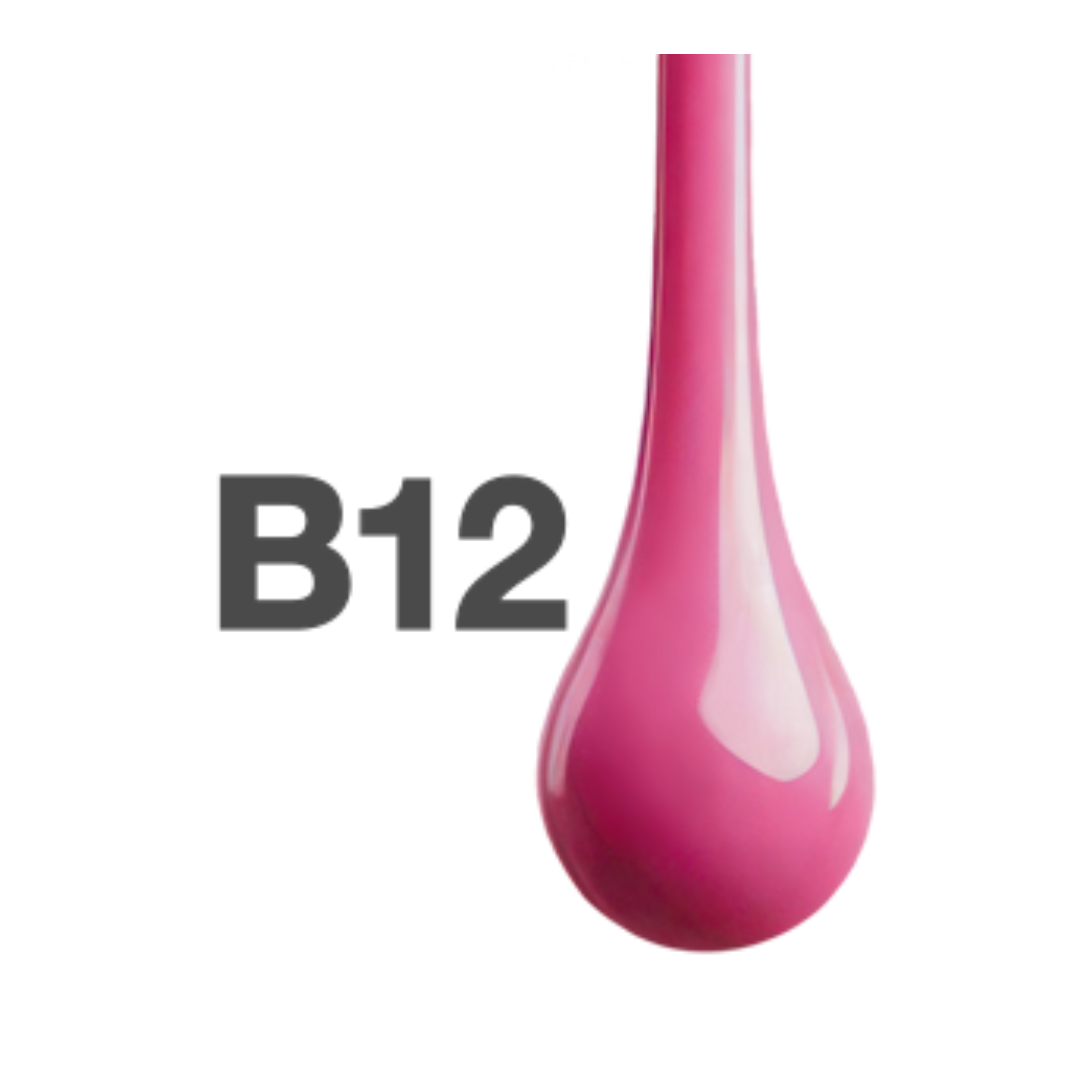How to get rid of plaque on the teeth
Most people have plaque occasionally. However, it is your worst enemy in your mouth, and it is important to keep it away.
What is the best way?
Learn more about what plaque is, and the best ways to get rid of it.
Table of contents
How do you remove plaque from the teeth?
Brush your teeth the same way as you brush your toilet. So what do your teeth and your toilet have in common?
In many ways, you are dealing with the same mechanisms. You use the toilet brush now and then to keep the brown deposits from forming. It is the same with your teeth.
If plaque is left undisturbed on your teeth for a couple of days, it will become a more solid deposit – and in the course of a week it can become so hard that you can no longer brush it away yourself. Then you need to see a dentist, who will use tougher measures.
The best way to keep plaque away from your teeth is to maintain good oral hygiene.
The best oral hygiene
Healthy oral hygiene consists of three steps to clean your mouth every day:
- Brush your teeth thoroughly twice a day – if possible with an electric toothbrush, which is extra effective. You can use Australian Bodycare Toothpaste with Tea Tree Oil, which is formulated to maintain a healthy environment in your mouth. It is antibacterial, and helps to keep plaque away.
- Use dental flossto get rid of food remnants your toothbrush cannot reach. It is important to supplement brushing your teeth with dental floss between your teeth, to be sure you have removed the bacteria there.
- Finish off with a mouthwash such as our Mouth Wash with Tea Tree Oil, which is antibacterial and gives you fresh breath and a healthy mouth. Rinse your mouth with about 20 ml once or twice a day after brushing your teeth.
Swirl it around your mouth for a minute and then spit it out. Do not eat or drink for 30 minutes after you have used mouthwash.
Good advice for your diet to avoid plaque
What you eat plays a major part in how healthy your mouth and teeth are.
So here is some good advice about how to prevent plaque forming on your teeth.
- Avoid sugary foods – plaque gets nourishment from sugar.
- Eat plenty of wholewheat products. These are not just good for your general health, but also good for your teeth. Where your teeth are concerned, it is mostly due to the mechanical effect when you chew bread rich in fibre, because it helps to clean plaque off your teeth.
- Rinse your teeth in clean water when you have eaten or drunk anything with a high content of sugar or acid.
- Do not sip at fizzy drinks, juice or other sweet drinks – it bathes the teeth in sugar for a longer period. Drink them over a shorter time, to protect your teeth as far as possible.
What is plaque?
Plaque is a sticky white layer of bacteria, which forms on the surface of teeth. It settles on the surface between the teeth and the edge of the gums – and the bacteria in plaque produce acid, which attacks the enamel of your teeth.
It harms both teeth and gums, and can lead to permanent damage, if you do not do something about it. Plaque is therefore one of the worst enemies you can have in your mouth and the cause of a variety of oral health problems.
What happens if you do not remove plaque?
If you do not remove plaque from your teeth, it can cause caries, or holes in the teeth. It can also cause gingivitis, and in the worst cases lead to periodontal disease.
Gingivitis and periodontal disease
The characteristics of gingivitis are tender, red and bleeding gums, while periodontal disease is an unpleasant disease where untreated gingivitis can cause considerable damage to the tissues deeper down.
Periodontal disease causes loose teeth, and in the worst case they fall out completely if the attachment of the tooth is damaged too severely.
Bad breath
Plaque can also cause bad breath, which is less serious, but none the less unpleasant for you – especially in social situations.
Scale
Calcium from saliva is accumulated in plaque, which becomes scale. Scale is a yellow or brown deposit on the teeth. It attaches like hard stone to the enamel on the teeth, and once it has formed, you cannot remove scale yourself. This must be done by a dentist, who has special tools to scrape the scale away.
Scale tends to form more in some people than others, but typically it becomes more pronounced with age.
How do you know if you have plaque on the teeth?
Your mouth is an ideal place for bacteria, with a temperature around 32° C and high humidity. Some bacteria are beneficial to the environment in the mouth, and your ability to taste and digest your food. Others are harmful – and during the day the harmful bacterial accumulate on your teeth and form plaque.
But how do you know if you have plaque on your teeth?
If you have plaque on your teeth, it is quite easy to feel where it is. You do not need a dentist to decide.
If you run the tip of your tongue over your teeth and along the edge of your gums, you will be able to feel roughness if there is plaque. You can also scrape a small amount of the deposit off with your nail if you try.
If you are still in doubt, you can also buy special dyes, which will show up the plaque on the surface of your teeth.

